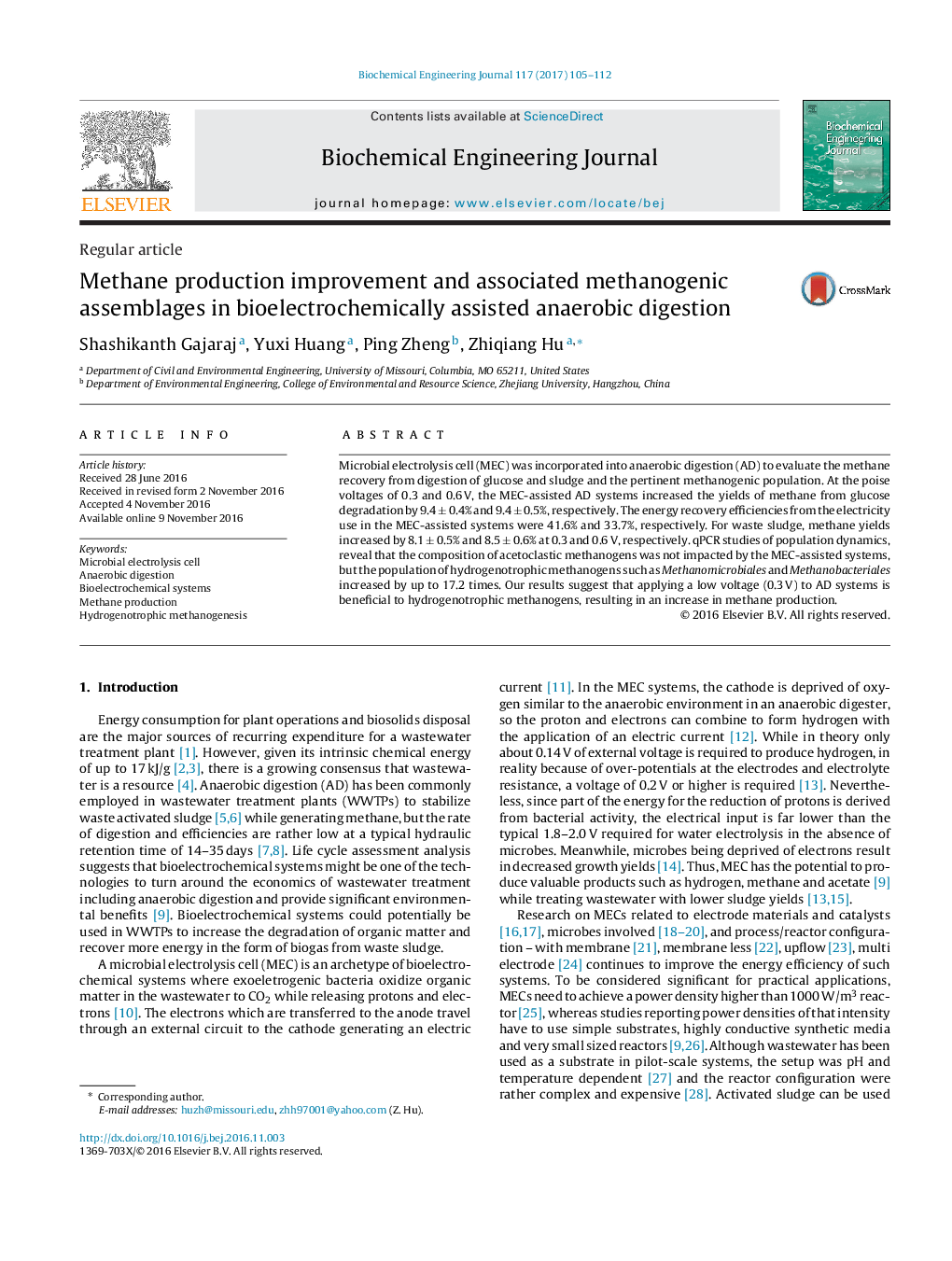| Article ID | Journal | Published Year | Pages | File Type |
|---|---|---|---|---|
| 6450450 | Biochemical Engineering Journal | 2017 | 8 Pages |
â¢Methane production improvement in MEC-assisted AD systems was confirmed.â¢The highest energy recovery efficiency due to the electricity use in the batch system was 41.6%.â¢An increase in voltage from 0.3 V to 0.6 V did not increase methane production.â¢The MEC-assisted systems increased hydrogenotrophic methanogens by up to 17.2 times.â¢The MEC-assisted systems had no impact on the population of acetoclastic methanogens.
Microbial electrolysis cell (MEC) was incorporated into anaerobic digestion (AD) to evaluate the methane recovery from digestion of glucose and sludge and the pertinent methanogenic population. At the poise voltages of 0.3 and 0.6 V, the MEC-assisted AD systems increased the yields of methane from glucose degradation by 9.4 ± 0.4% and 9.4 ± 0.5%, respectively. The energy recovery efficiencies from the electricity use in the MEC-assisted systems were 41.6% and 33.7%, respectively. For waste sludge, methane yields increased by 8.1 ± 0.5% and 8.5 ± 0.6% at 0.3 and 0.6 V, respectively. qPCR studies of population dynamics, reveal that the composition of acetoclastic methanogens was not impacted by the MEC-assisted systems, but the population of hydrogenotrophic methanogens such as Methanomicrobiales and Methanobacteriales increased by up to 17.2 times. Our results suggest that applying a low voltage (0.3 V) to AD systems is beneficial to hydrogenotrophic methanogens, resulting in an increase in methane production.
